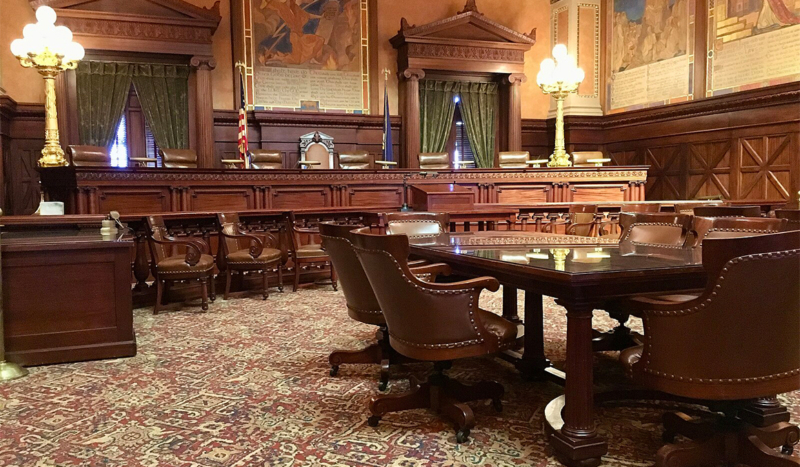
Chsdrummajor07 / Wikimedia Commons
CV NEWS FEED // A Pennsylvania district judge ruled Feb. 11 the city of Pittsburgh violated its Historic Designation Ordinance after its Historic Review Commission (HRC) unlawfully nominated a closed Catholic church as a historic structure.
According to U.S. District Court for the Western District of Pennsylvania Judge Scott Hardy’s memorandum opinion in Zubik v. City of Pittsburgh, the HRC accepted the April 2020 nomination from a city resident to designate St. John Vianney Catholic Church as a historical structure after it closed in 2016 due to extensive debt and repair needs. The resident reportedly made the claim in retaliation for the diocese’s decision to close the church and to prevent the diocese from removing artwork for future use.
According to the City of Pittsburgh’s Code of Ordinances, only the owner of a religious structure has the authority to initiate its nomination for historic designation.
The Diocese of Pittsburgh filed a complaint in June 2020 stating Bishop David Zubik, the owner of the church, opposed the nomination, emphasizing the church was not canonically closed for worship.
As stated in Zubik v. City of Pittsburgh, Bishop Zubik regulated St. John Vianney Catholic Church to non-religious purposes, announcing stained glass windows, sacred items, and non-sacred artifacts would be removed and retained at the Diocesan Archives for use by other ecclesiastical entities.
The Rome-based Apostolic Signatura decided to officially close the church building for worship in October 2022, according to Zubik v. City of Pittsburgh.
The Diocese requested a temporary restraining order and a preliminary injunction, alleging that the City of Pittsburgh and HRC Senior Preservation Planner Sarah Quinn infringed upon its constitutional and statutory rights by attempting to designate the building of St. John Vianney Church a historic structure, the court document stated.
The court ruled Feb. 11 the Diocese has been subject to irreparable injury by its unlawful nomination. The court enjoined the city from designating the church building as a historic structure.
The court also ruled that the city is further prohibited from accepting any nominations of the church building by individuals other than those authorized under the city ordinance.

